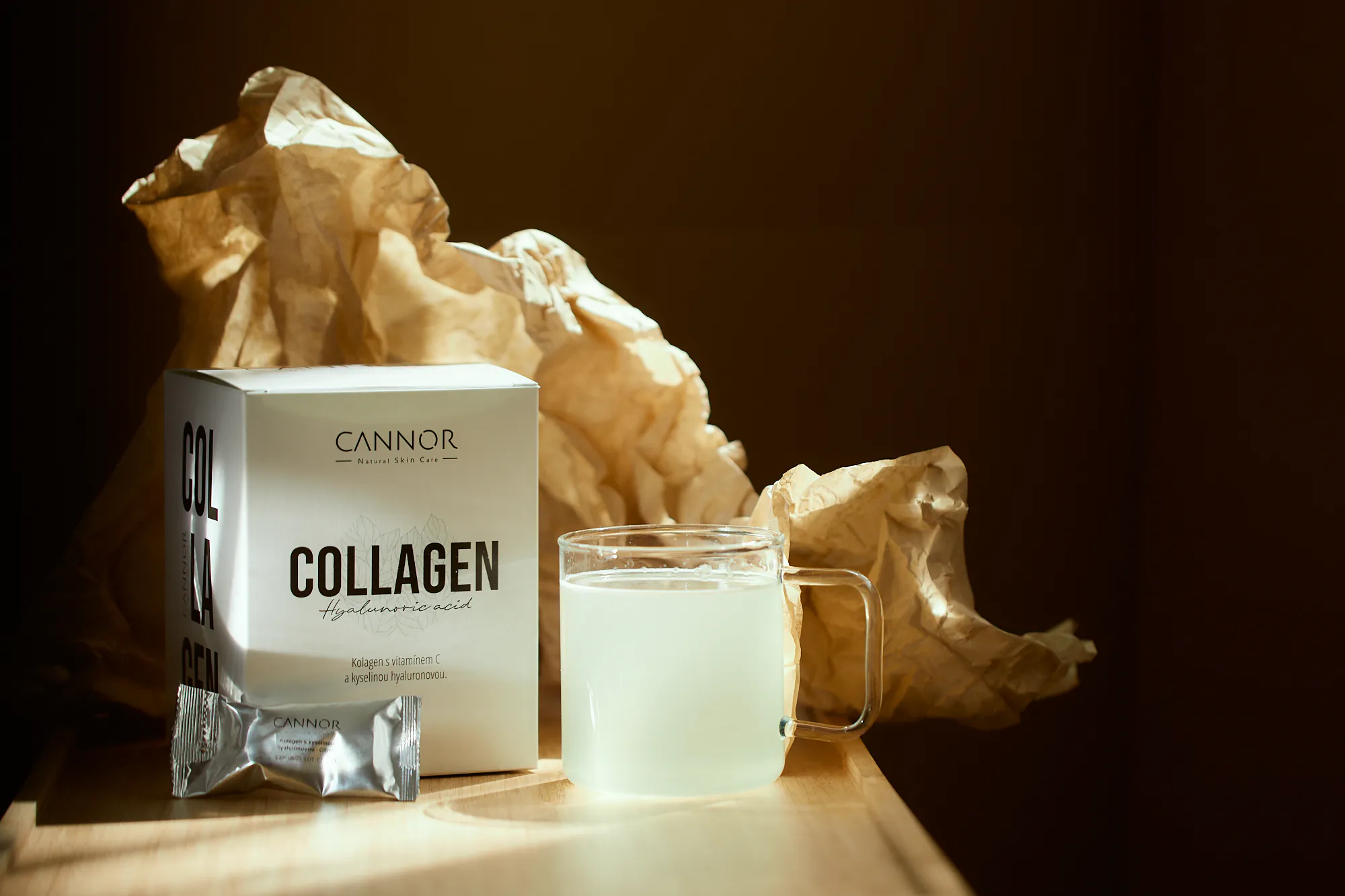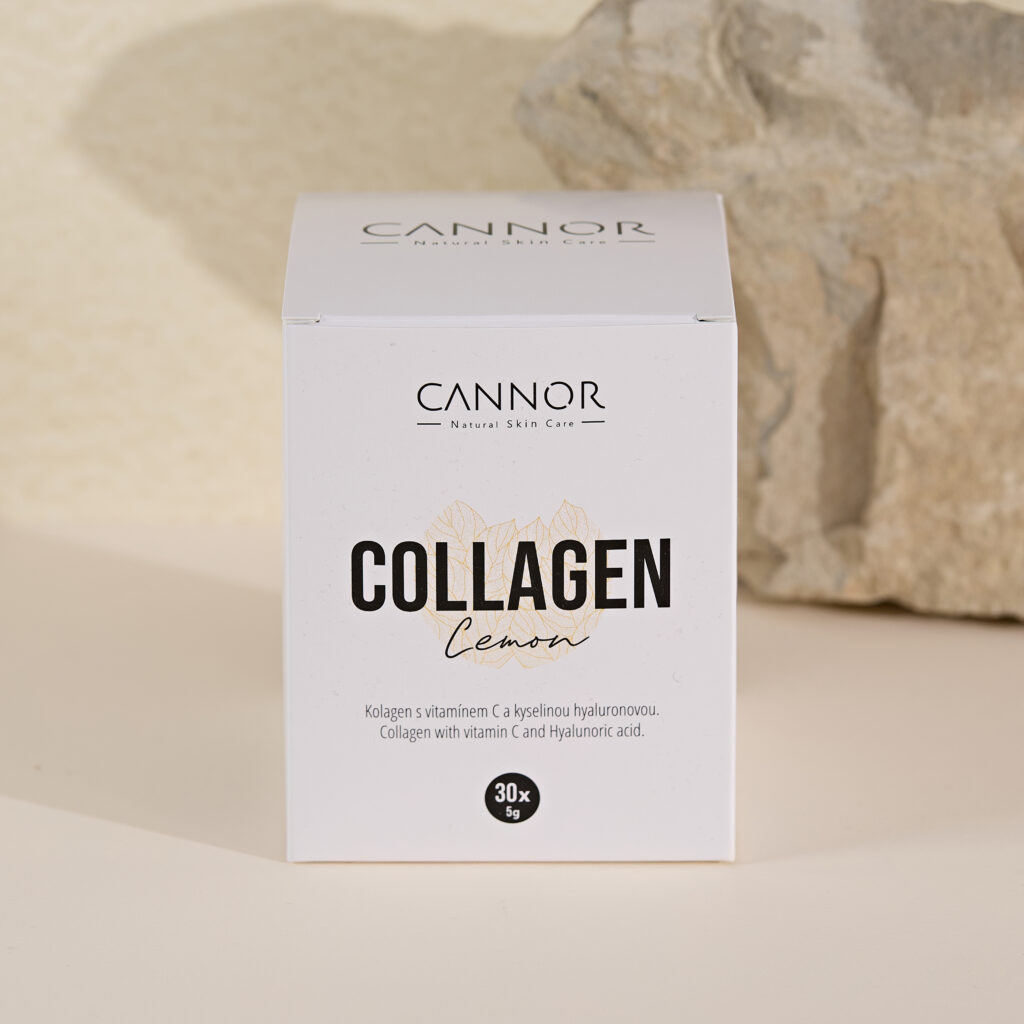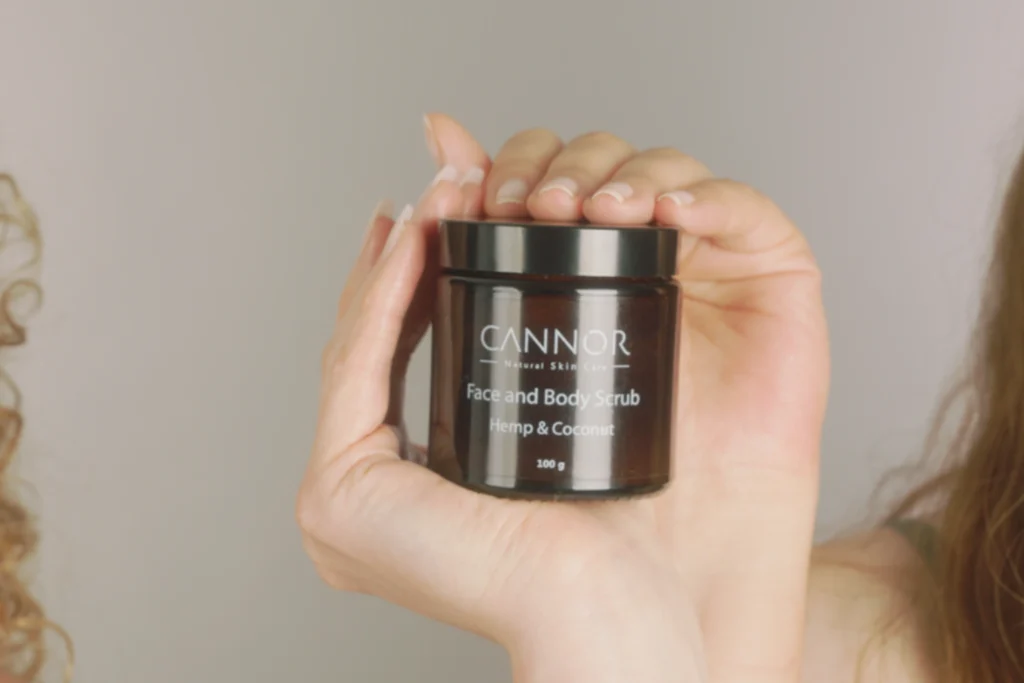Everything You Wanted to Know About Collagen: Beef, Fish or Low Molecular Weight?
- admin
Graduated chemist and Cannor developer answers the most frequently asked questions about collagen. Is beef or fish collagen better? Which collagen is better for joints and which for skin? What affects its absorption and how to choose?

From September onwards, our collagen is even more effective. We have innovated and enriched the existing formula with low-molecular collagen, which is better absorbed than conventional collagen peptides and thus gets into the skin more easily. The same effect will be achieved by 1/4 of the original recommended daily dose.
What types of collagens are there?
“There are several types of collagen peptides. In the body, type 1 is the most common. Our collagen contains the first and third types, T1 and T3. T1 is mainly found in the skin, tendons and ligaments. T3 is found in the muscles.”
What are collagen peptides?
“Collagen peptides are specifically broken-down parts of collagen that are soluble in water. They are already well digestible and have a high biological activity. On the other hand, “classic” collagen, i.e. collagen in its native state, is not hydrolysed in any way, has a large molecular weight and is not soluble in water.”
Innovative Collagen! Collagen drink with hyaluronic acid lemon firm skin that doesn’t sag. From the age of 25, the production of collagen and hyaluronic acid, two pillars of firm and hydrated skin, decreases in our bodies every year. And with them, the features of our faces.
The package contains 30 sachets. Sachet contents: Collagen 3000 mg, Hyaluronic Acid 50 mg, Acerola (Vitamin C) 70 mg, Natural lemon flavor.
What is the difference between marine and bovine collagen?
“There are beef, pork, chicken, and fish collagens for bones and skin. The difference is that fish does not need such strong connective tissues, skin and cartilage as, for example, a cow, and so fish collagen contains less of the amino acids proline and hydroxyproline. However, they are very important for the musculoskeletal system of mammals, including humans. If we need to deal with joints, bovine collagen is undoubtedly a better choice. Fish collagen does not have these amino acids, which in turn makes it easier to absorb.
Thus, fish collagen should be better in skin care. But beware! Bovine low molecular weight collagen is already on the market, i.e. its peptides are really short and get into the skin more easily. The recommended daily dose is thus significantly reduced – it is 2.5 grams for low-molecular weight collagen and 10 grams for conventional collagen peptides.
With low molecular weight bovine collagen, it can no longer be said with certainty that marine collagen is more effective in fighting wrinkles than bovine collagen. It turns out, that the low molecular weight version is a great choice for both joints and skin due to its easy absorption.”

Why should we buy collagen that is enriched with vitamin C? Does it promote its absorption?
“Vitamin C is very important for the biological production of collagen in the body. It is part of the enzymes that synthesize it. Thanks to a sufficient amount of vitamin C, cells are stimulated, and collagen is subsequently produced.
For this reason, acerola is contained in our Collagen here at CANNOR. Acerola is a fruit with a high Vitamin C content. The berries are collected, dried and ground. Vitamin C is water-soluble, so we have it in products that dissolve in water.”
Collagen is most often used for the musculoskeletal system and skin. What about post-accident care?
“Collagen increases the production of fibres to close wounds, scars, etc. faster. It clearly helps to speed up healing – whether after injuries, surgeries or births.”
Collagen and acne. Does it really cause it?
“Honestly, I haven’t encountered this, and I don’t think any of the customers have had a problem with it. Collagen, on the other hand, should reduce scars and protect against inflammatory skin conditions.”
We have already mentioned that the recommended daily dose for regular collagen is 10g, for low molecular weight only 2.5g. Does this apply to everyone?
“It depends on many factors. The older a person gets, the more they should take it, because collagen production decreases every year (after the age of 25). I will need a different amount when I am dealing with the musculoskeletal system at an older age, and a different amount when I want to firm and rejuvenate my skin after forty.
With the innovative CANNOR collagen, which contains both vitamin C and low-molecular collagen, I would stick to a range of one to a maximum of two sachets (3000mg each) per day.”




